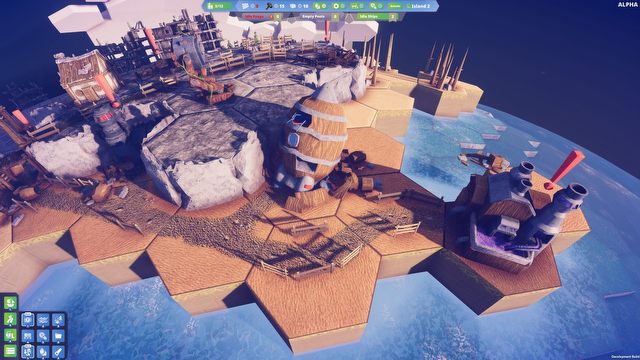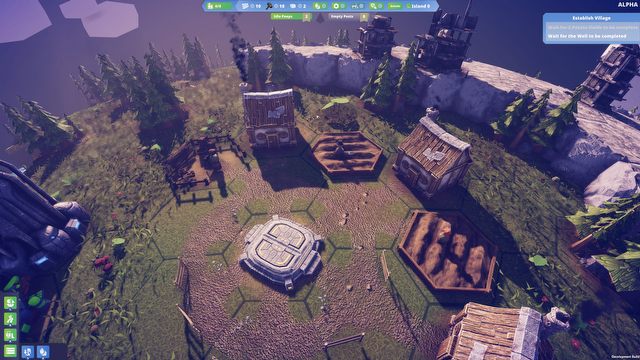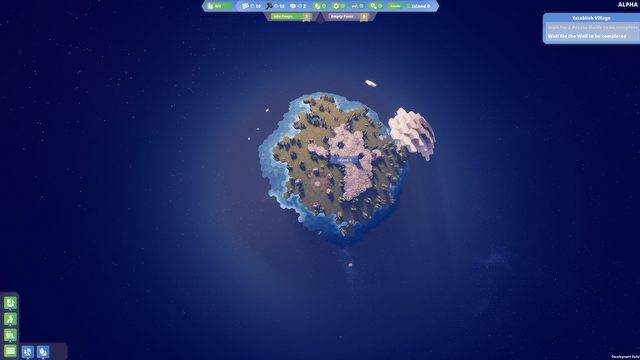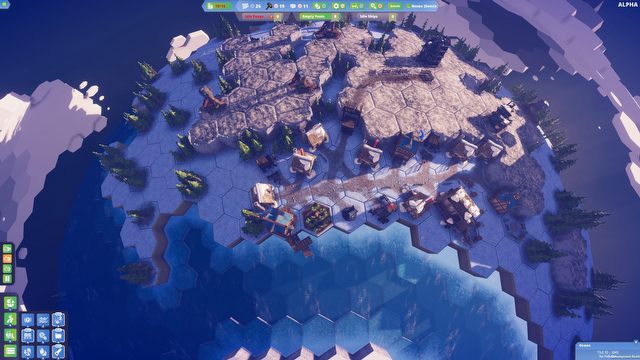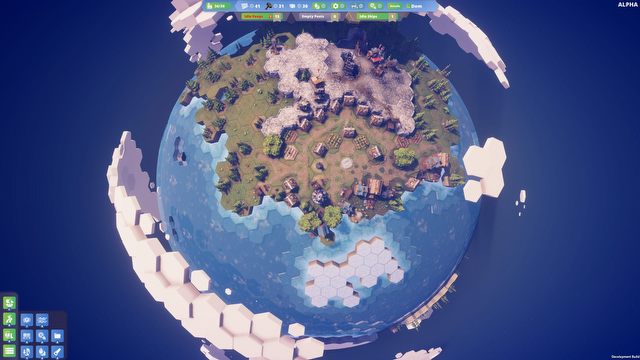Before We Leave is Mini-Anno... in Space
City-builders and RTS's aren't dead. They're well hidden in their niche, safe from the bloodthirsty mainstream. Before We Leave is one of the most interesting choices from this genre in 2020. We've played it and these are our first impressions.
We love to bathe in misery. "RTS is dead [*]" orphans after Starcraft write on forums across the web. "Publishers hate strategies," veterans mumble, remembering the days of yore when Electronic Arts released subsequent issues of the Command & Conquer series. "The mobile market is killing them," many pronounced after learning about the new installment in the Might & Magic series (yes, yes – a strategy battle royale created for mobile devices).
All this is true, but that’s just part of the story. There may not be as many high-budget projects as before, but actually, all the time spent on moaning and criticizing might have been better spent... playing all the new and exciting strategies. After all, recent years have been abundant with great strategies. There's been no shortage of strategic indie games – so many, in fact, that it was really easy to miss most of them. And one of the upcoming premieres is Before We Leave – a mini-Anno with a pinch of a joyful post-apo. I spent several hours playing the alpha version of the game, and I'm eager to share my impressions with you.
BEFORE WE LEAVE IN A NUTSHELL:
- economic strategy on a hexagonal map;
- charming graphics and no violence;
- settlers draw knowledge from remnants of a highly developed civilization;
- colonizing not only new lands, but also new planets;
- for now, pretty low level of difficulty.
Pretty post-apo
As in most economic strategies, in Before We Leave we start with almost nothing. We have a few settlers who have just come out of the shelter – we don't know what they were hiding from, but the world is so lush and beautiful it's practically begging to be tamed. When the people lived underground, the civilization obviously regressed significantly. Which creates an interesting contrast – our settlers are pretty much middle-ages people, but the world they inhabit is full of derelict mechs. Therefore, we initially set orchards, cut trees and dig wells. At this time, our brave researchers are painstakingly collecting the remnants of lost technologies, and those analyzed in the library allow us to invent better buildings.
Such a charming vision of post-apocalypse, in which the world is beautiful, and the humanity quickly makes up for the lost centuries, is very captivating, and perhaps my favorite thing about Before We Leave so far. Customarily, post-apocalyptic worlds are nasty – here, on the other hand, it is so beautiful you almost wish you lived there yourself.
However, a solid story background is what this game's currently missing. Where do new settlers come from? Why are they coming out of the bunker? Who were they before? We don't know any of this, and the demo didn't reveal anything about the setting. I really hope that in the full version, the creators will include a proper story – they have already taken the first steps by collaborating with fans on Discord. Adding a story background would infuse a bit of personality into our subordinates, who currently are just minions doing a certain job. The impression's further reinforced by the fact that they don't die no matter what, even if you starve them (for whatever reason). In any case, I didn't manage. But then I have a soft heart.
Looks like Anno
As soon as we build a lot of houses and start extracting raw materials, collecting it from the sad remains of dilapidated skyscrapers, we will hit a brick wall in development. By that time, we will have built everything the island can accommodate. At that point, you have to build the first ship and go to conquer a new continent. In this respect, Before We Leave resembles the Anno series, in that new lands will differ from each other both in resources and the challenges they impose. On a winter continent, it will be more difficult to grow food; on the desert continent, even water will have to be supplied with ships. In return, various biomes will provide things that we won't get anywhere else – for example, sand to make glass, or crude oil for making fuel. We use all this to repair the wreckage of a spaceship. Indeed, colonization in the game is not limited to a single, sad planet, and this could actually be the main thrust of Before We Leave, but we'll see about that when the game releases.
In Before We Leave, as in many economic strategies, there will be no violence. The developers have admittedly announced space whales that will feed on planets, but this sounds like one of those natural disasters we often encounter in such games. Consequently, finding a substantial challenge is hard – at least I didn't find it in the demo. I have a feeling that Before We Leave will be more fun for players who like to build rather than destroy, even if the building part isn't terribly complex either. Yes, I messed up a bit by building only one elevator in the capital (they have low capacity), but that's basically it when it comes to the mistakes I made. Personally, I prefer the city builders, in which bad decisions can lead to disastrous consequences, as in Banished, where in winter our settlement could freeze or starve to death (often both). Before We Leave is different – keep this in mind if you ever decide to get this game.
ECOLOGY, FOOL
Before We Leave, comes with a hint of an environmental message, which I totally dig. Each high-tech object (for example, a steel mill or a generator) creates pollution. At some stage of development, technology allows us to eliminate the adverse effects of factory fumes. In the alpha version, the pollution problem didn't affect me at all. I hope that the creators will further develop this idea, because if there was something I really missed in the demo, it were consequences of bad decisions.
Before we leave
I can't say more about Before We Leave. I spent a few hours playing – and that's basically it. I saw a promising foundation – now the developers must expand it so that the formula is not exhausted within a few hours. I hope the authors have a few more surprises that will increase the replayability and complexity of the simplistic economic dependencies. I would really love to see the space whales, too.
ABOUT THE AUTHOR
I always like economic strategies – and this is probably due to the fact that I grew up on the second Setters and still long for the long-forgotten system of paths. When it comes to new games, I really enjoyed Banished, as well as last year's Anno 1900.
